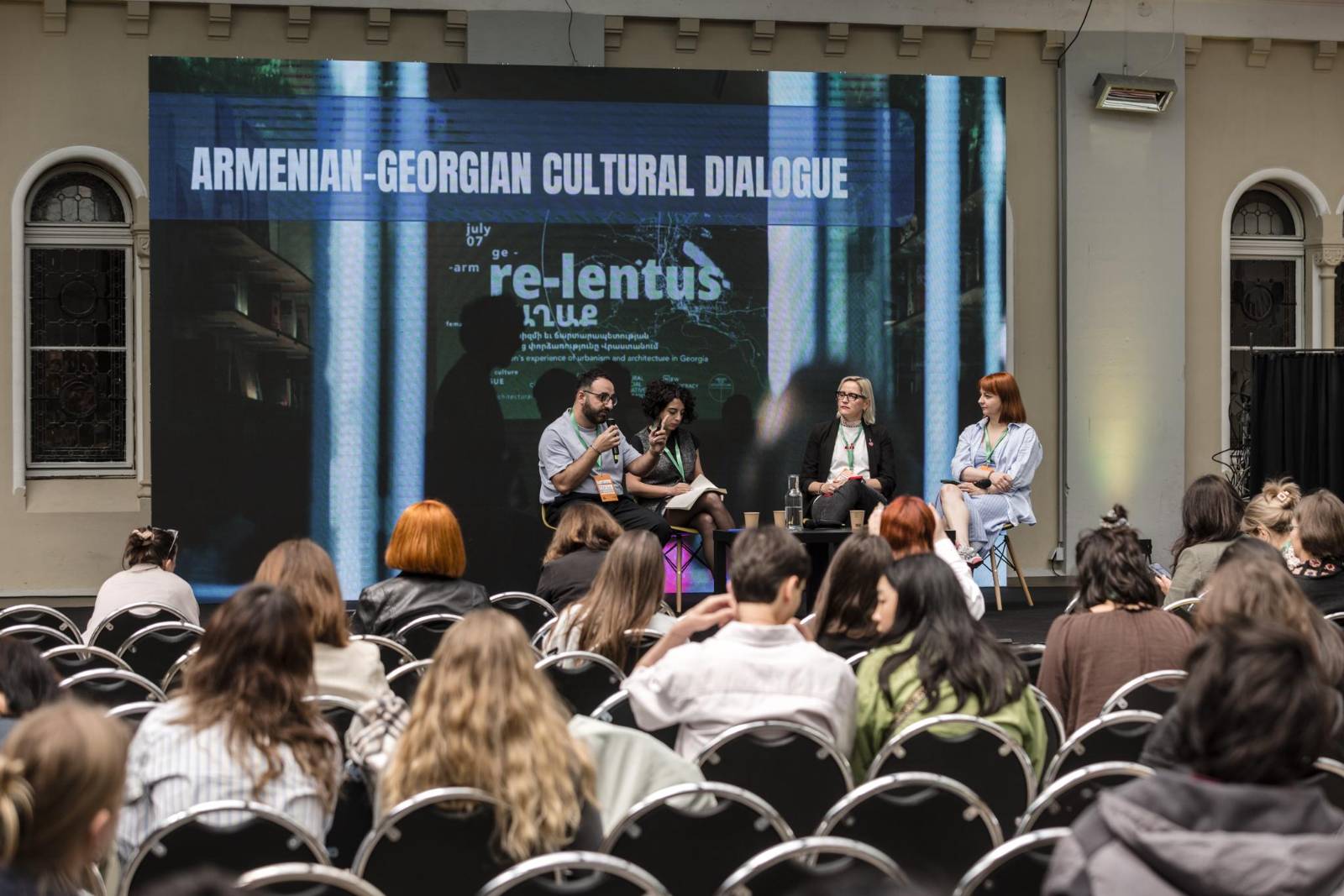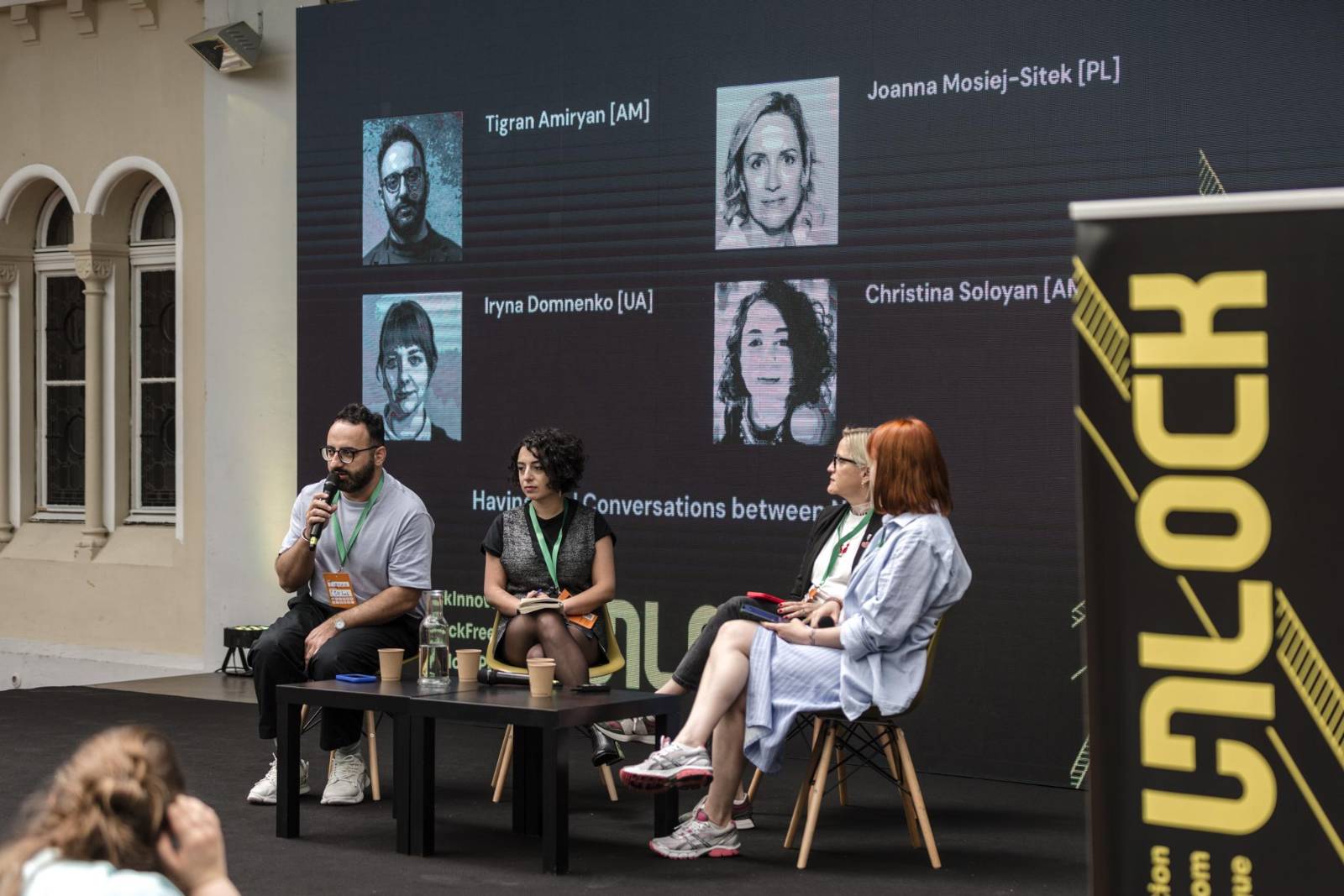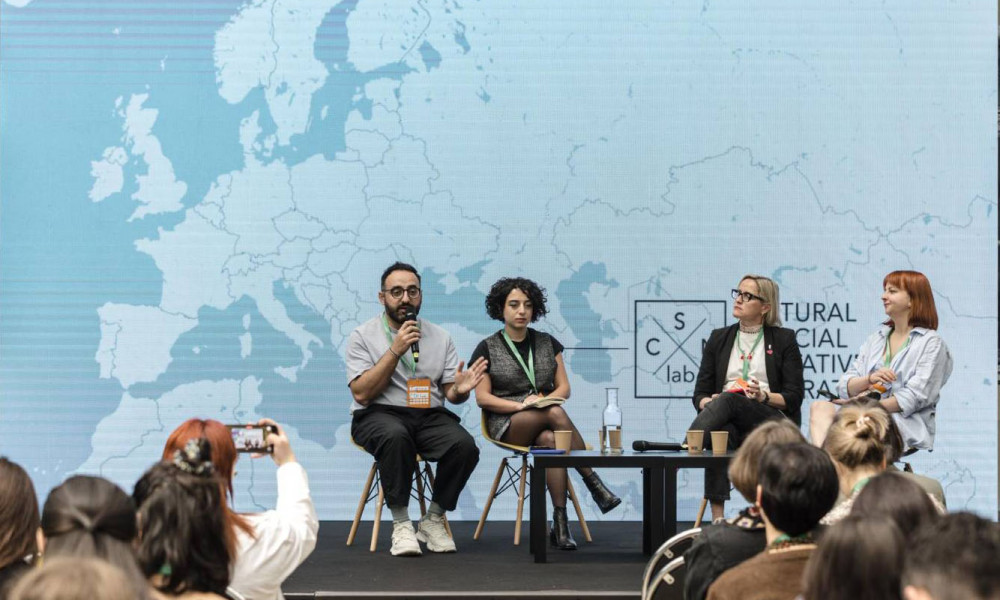CSN Lab’s regional and interregional dialogue programs, along with their progress and outcomes, became part of Unlock 2025. The annual Unlock Civil Society Forum, organised by Prague Civil Society Centre, iis a key platform for civil society representatives, activists, researchers, journalists, artists and cultural practitioners across Eastern Europe, Central Asia, and the Caucasus to come together around regional dialogue, solidarity, and collaboration.
Taking into account the growing challenges and pressures facing democracy, Unlock 2025 brought together civil society representatives from numerous countries to reflect on the role of civil society in building dialogue and finding solutions in a changing reality shaped by conflicts and wars.
As part of the program, participants had the opportunity to share their experiences, as well as to reimagine and reaffirm their role in fostering cultural and civic change under difficult political circumstances. While each country and region faces its own unique realities, the event clearly underscored a shared commitment to creativity and resilience in the struggle for a democratic future.

During the panel discussions of Unlock 2025, founder of CSN Lab Tigran Amiryan, alongside partners from other countries, emphasised the importance of interregional collaboration, particularly the opportunities and challenges within cultural cooperation. He highlighted the mutual recognition of rich and diverse experiences on the one hand, and on the other, the difficulties of sustaining collaboration in politically unstable environments.
Tigran Amiryan also presented a broad map of CSN Lab’s regional and interregional cultural initiatives. He specifically addressed Armenian-Georgian collaborative projects centred on cultural dialogue and gender mainstreaming. Given the two countries’ shared histories, postcolonial experiences, and contemporary challenges – including political tensions in Georgia – CSN Lab’s dialogue programs have become increasingly vital as tangible evidence of mutual support through culture. Recent shifts in Georgia’s political climate have not only created a renewed need for dialogue between cultural figures and artists from both countries but have also compelled a reassessment of Armenian-Azerbaijani dialogue efforts. Georgia has long served as a crucial neutral and safe space for both sides.

Taking into account the political developments in Armenia and the evolving public discourse, Amiryan also reflected on cultural initiatives aimed at fostering dialogue between Armenia and Turkey. Despite challenges such as the war in Ukraine and political repressions in Belarus, CSN Lab also continues to implement dialogical programs with civil society actors from Ukraine, Belarus, Moldova, and beyond. It also actively promotes Armenia-EU cultural dialogue, underscoring the need to revisit national narratives and to create more inclusive and alternative cultural environments.
The panel also featured experts from Armenia - Kristina Soloyan, Ukraine - Iryna Domnenko, and Poland - Joanna Mosiej-Sitek. In the context of war, repression, displacement, and financial crises, the very realisation of such a gathering stands as a testament to the vitality and resilience of civil societies. In response to regional tensions, CSN Lab continues its work with the goal of strengthening bonds of solidarity and mutual support, standing alongside those committed to building a future grounded in dialogue, accountability, and democracy.

